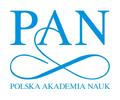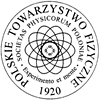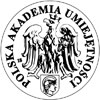General Information
The subject of the 63-rd School will be physics of nuclear matter at extreme densities and high temperatures. In recent decades we have witnessed an unprecedent progress in unraveling the properties of strongly interacting hadronic matter at large temperatures. Experiments performed at RHIC at Brookhaven National Laboratory and at CERN provided a wealth of data that led to the discovery of a new state of matter, so called, quark-gluon plasma.
On the other hand, the properties of matter at extreme densities are at the moment rather poorly known. The main experimental information is rather new, and comes mostly from the nuclear star mergers that have been observed through the emission of gravitational waves. We expect new ground-based experiments studying high density nuclear matter to be completed in the near future. The most promising now is the CBM experiment at the FAIR facility in Darmstadt.
Theoretical studies of matter at the extreme densities are mostly based on phenomenological models, as ab initio calculations within the framework of the discretized computer simulations of Quantum Chromodynamics (QCD) are hampered by the so-called sign problem. Therefore, confronting present phenomenological understanding with data from nucleon stars and from existing experiments on heavy ions and heavy nuclei, and finally from the future CBM experiment, will certainly boost the whole field and will widely extend our understanding of nuclear matter at extreme densities.
The aim of the School is to provide an overview of the CBM project, review of experimental data from RHIC, LHC and GSI experiments, to present current understanding of the physical phenomena relevant to the physics of nuclear matter at extreme conditions, as well as the theoretical expectations from the future experiments.










